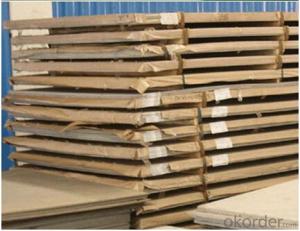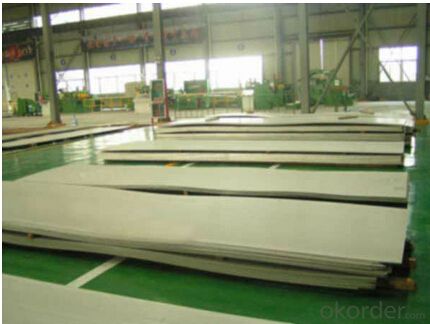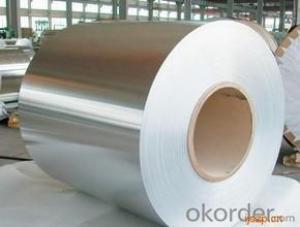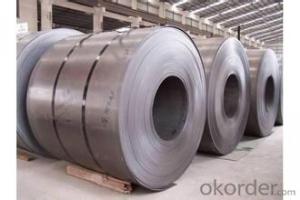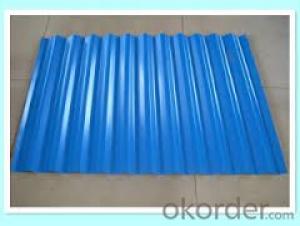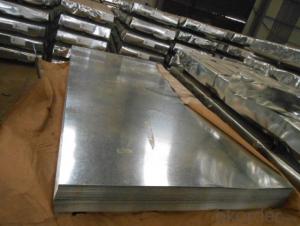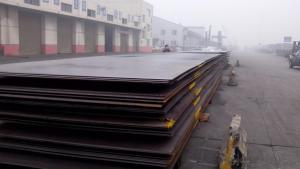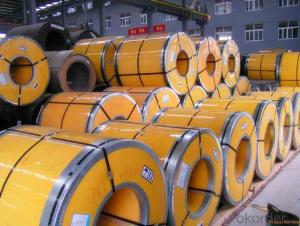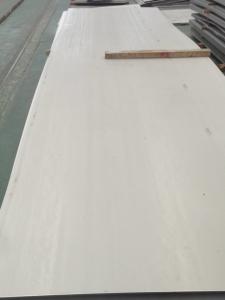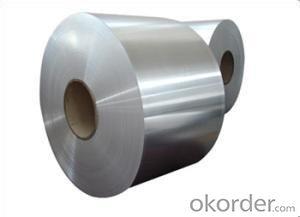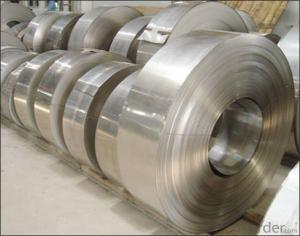high quality hot rolled stainless steel plate 306
- Loading Port:
- China Main Port
- Payment Terms:
- TT OR LC
- Min Order Qty:
- -
- Supply Capability:
- -
OKorder Service Pledge
OKorder Financial Service
You Might Also Like
Specifications
Stainless steel plate:1. Width: 1000mm-2600mm
2. Thickness: 0.3mm-100mm
3. Steel grade: 200/300/400/600 series
Stainless steel plate:
Width | 1000mm-2600mm |
Thickness | 0.3mm-100mm |
Length | As your requirements |
Materials | 303se,304,TP304,TP304L,305,306,309S,310S,310H, TP316,TP316L,316Ti,317,317L,317Ti,321,SUS321,347,SUS347,440C,440F,C-276,Ni80Cr20,Ti,630,631,632,XM7,329JI,2205,2207,S32750,S32550,S32154,S32183, 904L,
|
Minimum order | 1 Ton |
Standards | ASTM A511 A269 A312 A213, GB/ T14976-2002 GB 13296-91 |
FOB Price | the latest price |
Surface | polish, primary color, matt, mirror face ,wire drawing |
Productions requirement | cold drawing, cold rolling, precision rolling |
Main markets | Asia, Europe, Middle-east area, Africa, South/North America |
Certification | ISO |
Application | chemical industry, metallurgy, construction, water conservancy |
- Q: What are the challenges in coil recoiling for high-strength steel?
- Coil recoiling for high-strength steel presents several challenges that must be addressed. To begin with, high-strength steel possesses heightened hardness and strength, rendering it more difficult to coil than regular steel. The greater tensile strength of high-strength steel places additional strain on the recoiling machinery, potentially resulting in damage or machinery failure. Moreover, high-strength steel tends to exhibit reduced ductility, meaning it is less able to endure deformation without fracturing. Recoiling high-strength steel coils necessitates meticulous handling and control to prevent excessive bending or stretching that could lead to material breakage or cracking. Another obstacle arises from the shape memory effect of high-strength steel, whereby the material returns to its original shape after being deformed. Although this property can be advantageous in certain applications, it complicates the recoiling process as the steel coil resists reshaping into a new coil form. Furthermore, high-strength steel often possesses a more intricate microstructure compared to regular steel, characterized by various phases and grain boundaries. This complexity can heighten the difficulty of the recoiling process, as it can impact the material's mechanical properties and response to deformation. Finally, the surface finish of high-strength steel coils is crucial for many applications. Recoiling can introduce surface defects, such as scratches or marks, which may impair the functionality or appearance of the final product. Consequently, maintaining a high-quality surface finish during the recoiling process poses a significant challenge. In summary, the challenges associated with coil recoiling for high-strength steel encompass increased stress on recoiling equipment, reduced ductility, the shape memory effect, complex microstructure, and the need for a high-quality surface finish. Overcoming these challenges necessitates specialized equipment, precise control, and careful handling to ensure the integrity and quality of the recoiled high-strength steel coils.
- Q: Does anyone know the lyrics to steel driving man by Dailey and Vincent. I would really appreciate it
- I okorder /
- Q: What are the different types of steel coil surface appearances?
- The different types of steel coil surface appearances include hot rolled, cold rolled, galvanized, coated, and textured finishes.
- Q: How are steel coils inspected for flatness variations?
- Steel coils are inspected for flatness variations using various methods such as visual inspection, measurement techniques, and automated systems. Visual inspection involves trained personnel visually inspecting the coil's surface for any irregularities or deviations from flatness. Measurement techniques involve using precision instruments such as straight edges, feeler gauges, or laser sensors to measure the flatness at different points along the coil's length. Automated systems use advanced technologies like laser scanning or optical sensors to quickly and accurately detect any flatness variations in the steel coils. These inspections help ensure that the coils meet the required flatness specifications and quality standards.
- Q: What are the common industry standards for steel coils?
- The common industry standards for steel coils include specifications related to dimensions, weight, chemical composition, mechanical properties, and surface finish. These standards are often set by organizations such as the American Society for Testing and Materials (ASTM), International Organization for Standardization (ISO), and the Steel Industry Associations.
- Q: Can steel coils be coated with fire-resistant materials?
- Yes, steel coils can be coated with fire-resistant materials.
- Q: What are the factors to consider when selecting a supplier for steel coils?
- There are several factors to consider when selecting a supplier for steel coils. 1. Quality: The supplier's reputation for providing high-quality steel coils is crucial. The steel coils should meet industry standards and have consistent quality to ensure the durability and performance of the final product. 2. Reliability: It is important to choose a supplier that can consistently meet your demand for steel coils. They should have a proven track record of on-time delivery and the ability to handle large orders efficiently. 3. Cost: The pricing of steel coils is a significant factor to consider. While it is essential to find a supplier that offers competitive prices, it is equally important to ensure that the quality is not compromised. Comparing prices from multiple suppliers is advisable to find the best balance between cost and quality. 4. Range of Products: Look for a supplier that offers a wide range of steel coil products. This ensures that you have various options to choose from and can find the exact specifications and dimensions that meet your requirements. 5. Technical Expertise: A supplier with technical expertise and experience in the steel industry can provide valuable advice and assistance in selecting the right steel coils for your specific needs. They can also help with any customization or special requirements you may have. 6. Location and Delivery: Consider the supplier's location and their ability to deliver steel coils to your desired location. Choosing a supplier who is geographically closer to your facility can help reduce transportation costs and lead times. 7. Customer Service: A supplier who values good customer service is always preferable. They should be responsive to your inquiries, provide timely updates, and be willing to address any issues or concerns that may arise. By considering these factors, you can make an informed decision and choose a supplier that best meets your requirements for steel coils.
- Q: Can steel coils be used in electrical applications?
- Yes, steel coils can be used in electrical applications. Steel coils are often used as magnetic cores in transformers and inductors, which are essential components in electrical circuits. The steel used in these coils is typically a type of high-quality electrical steel that has specific magnetic properties, such as low core losses and high permeability. These properties allow the steel coils to efficiently transfer electrical energy between different components of the circuit. Additionally, steel coils can also be used in other electrical applications, such as in the construction of electric motors and generators. Overall, steel coils are widely utilized in electrical applications due to their magnetic properties and their ability to handle high currents and temperatures.
- Q: What are the main factors that affect the strength of steel coils?
- The main factors that affect the strength of steel coils include the composition and quality of the steel used, the manufacturing process employed, the thickness and width of the coils, and the presence of any impurities or defects. Additionally, factors such as temperature, humidity, and storage conditions can also impact the strength of steel coils.
- Q: How are steel coils protected from mechanical damage?
- Steel coils are protected from mechanical damage by using various methods such as wrapping them with protective materials like plastic or paper, using suitable packaging and strapping techniques, and storing them in a controlled environment to prevent any potential impacts or collisions.
Send your message to us
high quality hot rolled stainless steel plate 306
- Loading Port:
- China Main Port
- Payment Terms:
- TT OR LC
- Min Order Qty:
- -
- Supply Capability:
- -
OKorder Service Pledge
OKorder Financial Service
Similar products
Hot products
Hot Searches
Related keywords
